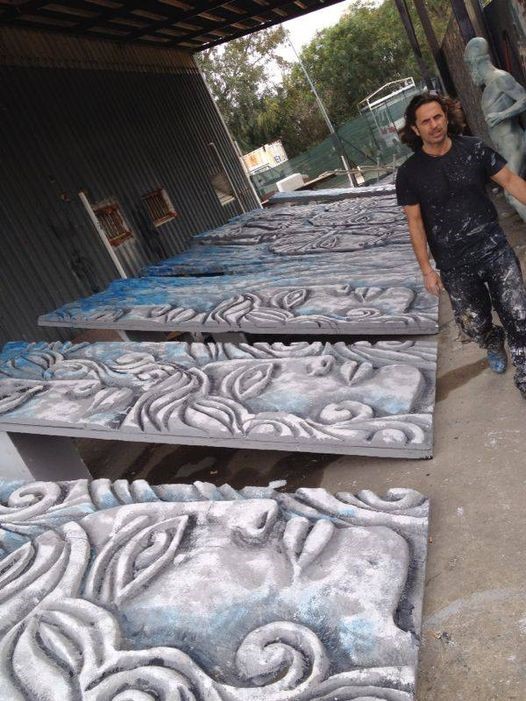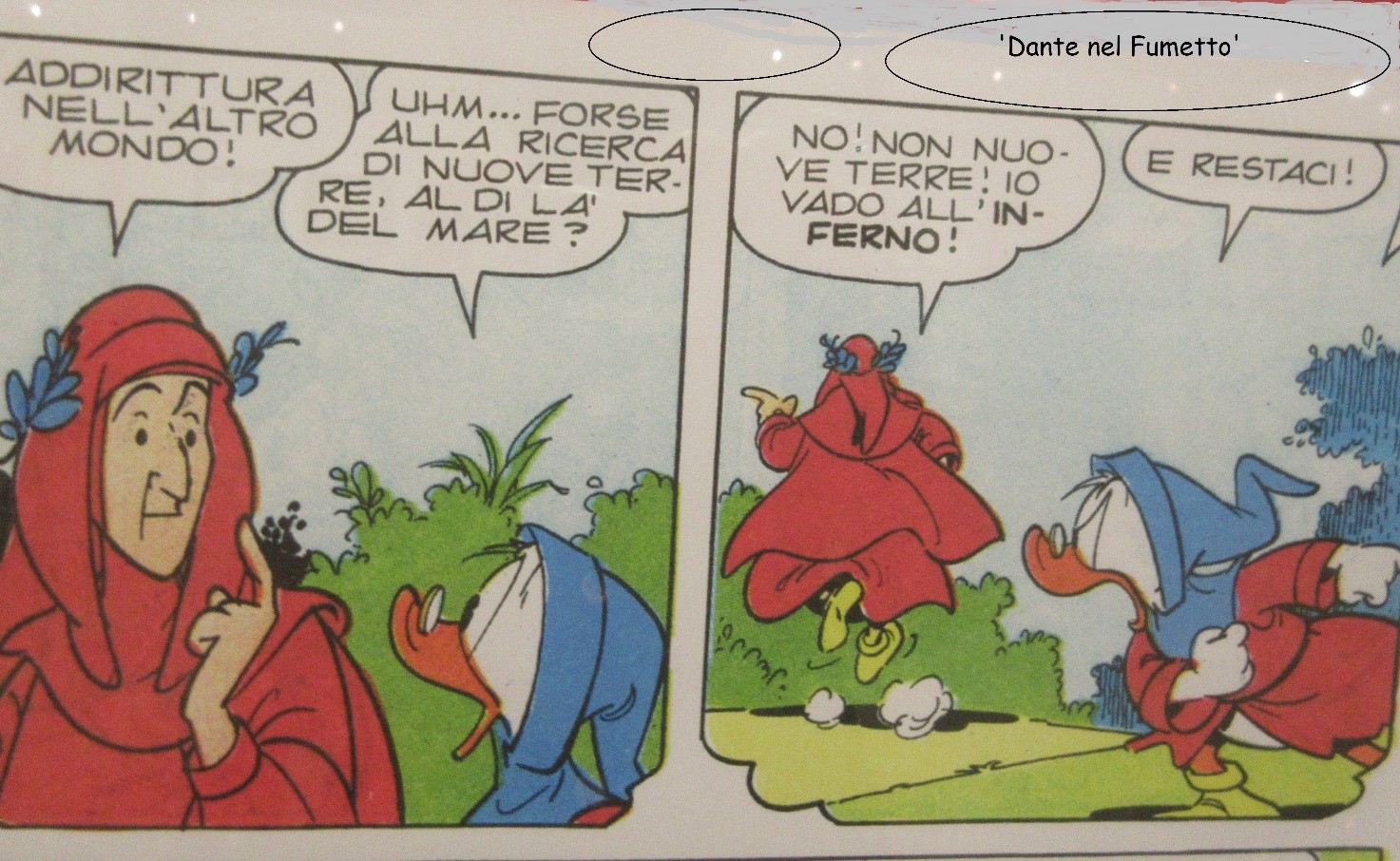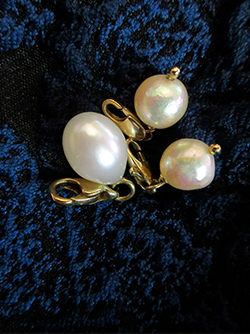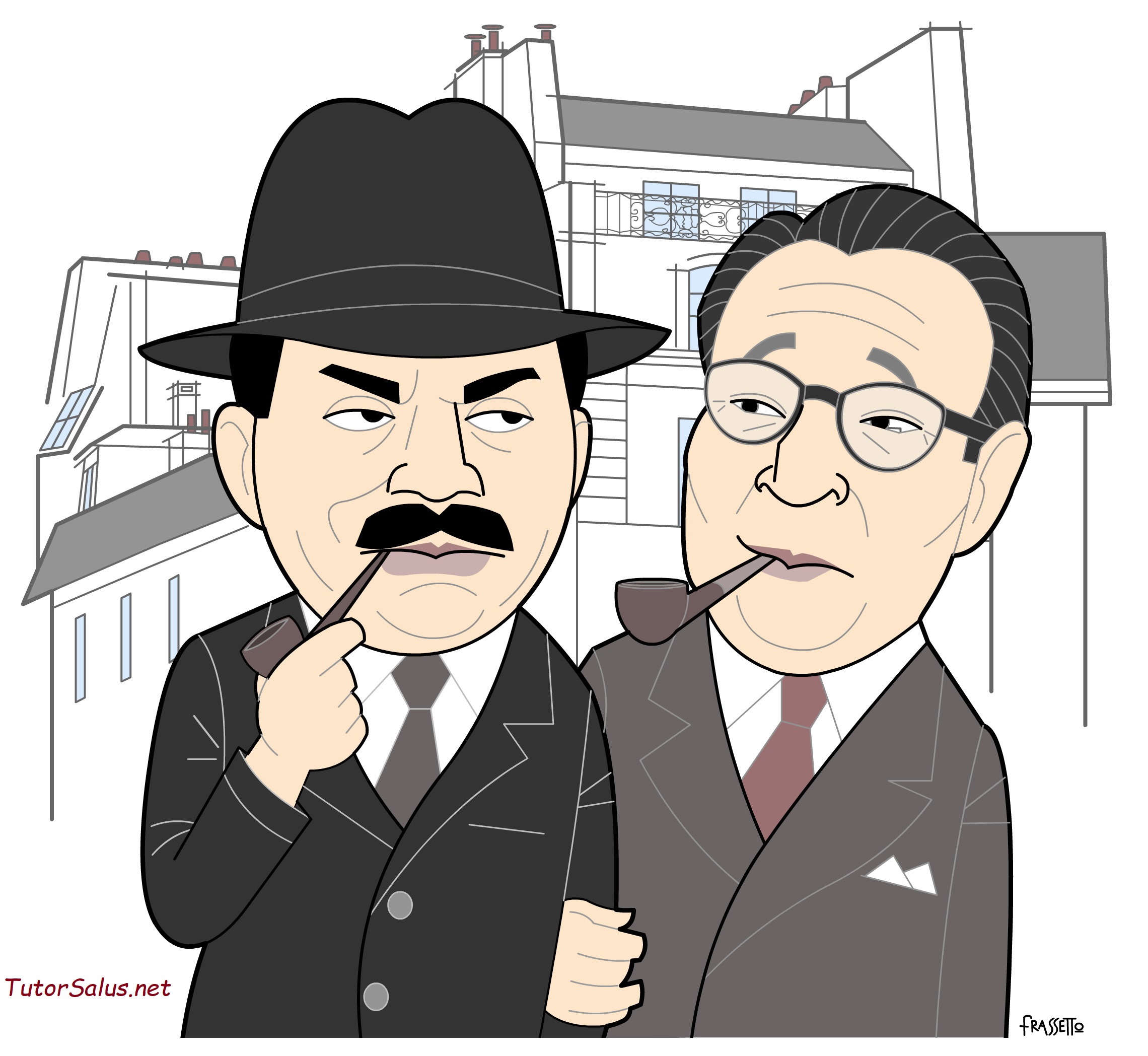Maskers, and me.
Tony Fanciullo[1], scene designer.

The scene designer Tony Fanciullo at work. Picture ref.:0_5531397_125008.jpg
Tony Fanciullo has been working for years at Greek Theater in Siracusa (Sicily), by ‘Fondazione I.N.D.A.[2] : their workshop is inside of ‘Accademia d’Arte del Dramma Antico’[3].
Which are the steps in working out a scenery?
“The first step is the meeting with the director, the costume designer, the chief scene designer : with them we can make clear the requirements from direction, the materials available and rooms, any ready handmade and further to be included.
First of all, in that meeting a specific idea is communicated about what to be performed : so that, beyond the director also actors can be part. I remember, in 2009, the meeting with Fernando Balestra – ex superintendent in Fondazione I.N.D.A. – when the actor Ugo Pagliai was present in order to bring on the scene ‘Le Supplici’ by Aeschilus, director Tatiana Alescio : Balestra could pr well describe the ‘broken vessel’ he did like at the center of stage, I can say that the first sketch I showed was selected. That was satisfaction to me : we were successful with the performance not only at Greek Theater of Siracusa, but also then in tour abroad…”
How do you get the sketch ?
“That takes months, not only of reading the text but also of studying preceeding work by the director, then visiting painting exhibitions - I like Salvador Dalì, Joan Mirò : by them I can get my starting point up to a few projects - thirty to say - I make in black and white, which then can be coloured for the final selection.” And then ?
“Thanks to cooperation with technicians and workers, we have to rapidly fulfil the commitment, as then there’s no much time…”
In the Greek Theater of nowadays however, maskers are no more present as they don’t even mediate as in past time when, for example, women couldn’t play on stage and a feminine mask was used as a substitute for the actress.
“Studying of maskers is so important in ‘Scene design’ and ‘Greek Theater’, as maskers were essential to bring the sound to people all around the stage : as a matter of fact, also if from the more distant steps, actors playing on the stage weren’t so evident, their maskers could amplify the sound of words getting also to distant people in the theater.”
Then maskers have been shifting also in substituting emotions the actors couldn’t play : we see infact that the written text was time by time delegating to maskers its original message.
“The scene design can show the meaning of a work and written text, as it is in the ‘Greek Theater’ : an essential communication to people alla round the stage, which make a crucial link between director and scene designer…”
The scene staging for ‘Pilade’ by Pier Paolo Pasolini in the first centenary from the author’s birth, and put on by Tony Fanciullo for the ending display of the III year students, had as a protagonist the round courtyard of the ‘Art Academy of Greek Theater’ where the work has been performed - respectfully toward the new anti Covid19 rules – as the motionless maskers have been disposed all around the stage on which any student-actors and actresses have been playing with participation and ability. Thanks to the excellent specific didactics of their Academy, the same students could then make their debut into the ‘Greek Theater’, side by side to professional actors and actresses.
Siracusa nowadays, with the ‘Greek Theater’ is going on to reveal the originality of ancient authors living more than two thousands of years ago together their strong message, simply by using again those ‘Maskers’, which have been hiding in the centuries an ‘I’ as a subject, not only playable but able also to be acted day by day : simple, laborious, faithful.
Marina Bilotta Membretti, Cernusco sul Naviglio September 11, 2021
[1] Born in Siracusa (1965) and graduated in ‘Direction Institutes’ at ‘D.A.M.S./Bologna, Tony Fanciullo was fond of ‘scene design’ since his University ages, thanks to a number of workshops lead by Dario Fo and Dario Argento just on ‘maskers’. Aldo Parmigiani, famous artist still painter in Milan, has been his teacher for a long time. Tony Fanciullo does remember also Sebastiano Jano Fanciullo, his father and a well known artist. “I was following my father in his workroom and everywhere he was meeting artists, scene designers, theater directors : as a number of scene designers , he was a painter too. For a number of years he has been working with ‘Torcular Spa’, in Milan, as they are specialized in graphic works as Aligi Sassu’s and Salvatore Guttuso’s. Tony Fanciullo has been working with ‘Moscow Ballet’, putting on, in just three years, eight scene designs painted by hand on fabric : just the central tables required an end panel of 10mt x 12mt. In 2005 he was asked by Italian ‘Ministero per le pari opportunità’ as ‘art consultant’ for three main Projects with ‘woman’ as a subject. He is an artist himself, with exhibitions made in Bologna, as the ‘Biennale Vittoria d’Arte’ (1988) when his work was selected by Vittorio Sgarbi; ‘Arte Fiera’ in Padova (1997) and a few one-man shows in Siracusa and other towns. For the ‘International Festival of Classic Theater of Young people’, organized by I.N.D.A. Foundation and held every year at ‘Greek Theater of Akrai’, at Palazzolo Acreide (Siracusa), Tony Fanciullo has been designing and putting on the stage all the scene designs : the Festival – directed by Dott. Sebastiano Aglianò and to which also cooperates the technician Raffaele Cravano – is the most followed event of Classical theater by young people, as it calls Art Lyceums and Academies from Italian and abroad towns, also if the past two editions 2020 and 2021 couldn’t be held, respectfully to anti Covid19 new rules. Latest is the scene design put on by Tony Fanciullo for ‘Cavalleria rusticana’ by Pietro Mascagni author and performed at Priolo Gargallo (Siracusa), directed by Antonino Interisano, with the ‘Orchestra Mediterranea Siracusana e Coro’.
[2] Fondazione ‘Istituto Nazionale del Dramma Antico’, with head-office in Rome and Siracusa : the first performance at ‘Greek Theater’ was in 1914. www.indafondazione.org
[3] The ‘Accademia d’Arte del Dramma Antico’ in Siracusa is in Via Gargallo 67, near the ancient ‘Convento di San Francesco’.




